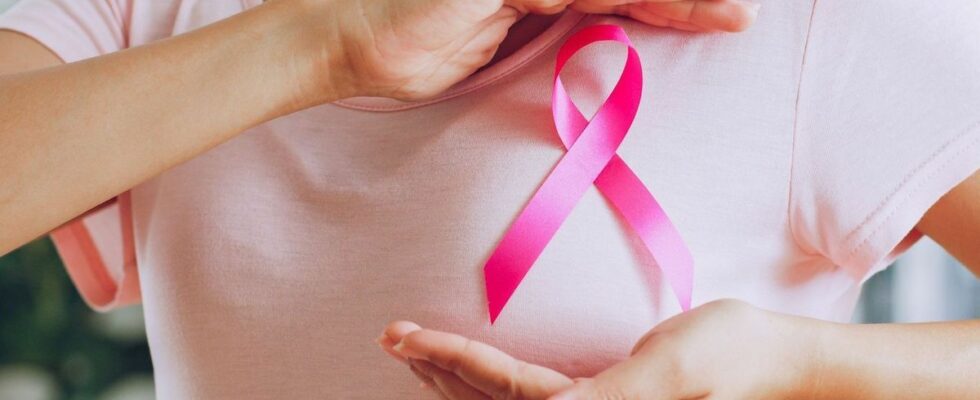Published on
updated on
Reading 3 min.
Red September, turquoise, gold. Blue March, green June… In the wake of Pink October, which raises awareness of breast cancer, several months of the year are now associated with a color, a way considered simple and effective to lift the taboos surrounding the disease.
Every fall, it’s impossible not to hear about Pink October. The initiative was born in the United States in 1985. A few years later, in 1994, the Estée Lauder group and Marie Claire magazine imported this breast cancer awareness campaign to France.
During this month of the year, thousands of events are organized across the country, monuments like the Eiffel Tower are adorned with pink, many actors mobilize, prizes aimed at supporting research are awarded…
Looking back, “we measure the enormous impact of Pink October“, notes Coralie Marjollet, president of Imagyn, an association which supports women affected by gyneco-pelvic cancers.
“It had the merit of putting breast cancer in the spotlight and reminding women of the importance of getting their mammograms.” she unrolls.
In the same spirit, his association created “September turquoise” in France seven years ago.
Initially, it was former US President Barack Obama who wanted to dedicate the month of September 2016 to raising awareness of ovarian cancer, from which his mother died.
“Get tested”
The Imagyn association imported the initiative to France the following year. Turquoise is associated with it since it is the color of the ribbon chosen, internationally, to talk about ovarian cancer.
Slowly, the campaign is getting people talking on social media, in the media, in hospitals… “The more we dare to communicate about these cancers, the less the women affected will be ashamed of this disease, while others will think about getting screened,” hopes Coralie Marjollet.
At the start of the school year, it is once again an opportunity for the association to support vaccination against the papillomavirus (HPV), the cause of many cancers (cervical, vulvar, vaginal, ENT, anus, etc.), which will be offered again in the 5th grade secondary school this year.
September “in gold” also stems from a movement – “Gold In September” – born in the United States in 2012, which this time aims to highlight the fight against childhood cancers.
“The Americans are ahead in the liberation of speech, we said to ourselves that we had to launch this important event in France because children are often the great forgotten of research.” says Perrine de Longevialle, director of branding and philanthropy at the Gustave-Roussy Cancer Institute, who launched the project in 2016.
The opportunity to “give visibility to these pediatric cancers“, but also to raise funds: “20 million euros since the start of the initiative” she says happily.
“We trivialize”
September has also been “red” for three years to raise awareness of blood cancers.
Each year, they affect around 45,000 people in France.Five new cancers are diagnosed every hour“, explains Karin Tourmente-Leroux, president of the association “Living with an MPN” (myeloproliferative neoplasias are rare blood cancers).
Three years ago, she launched the first edition of “Red September” to “raise awareness among the general public”.
“Many blood cancers are not well known, and patients often feel alone in their fight.” she said, also hoping to “boost research.”
Other “colorful” months will follow one another throughout the year, such as “Blue March”, dedicated to colorectal cancer, or “Green June”, cervical cancer awareness month.
A profusion likely to confuse the messages? For Mario Di Palma, oncologist at Gustave-Roussy, “The benefits of this extensive and varied communication far outweigh the potential drawbacks.“.
“I knew years when we didn’t say the word +cancer+.“, he remembers.The more we speak out on the subject, the more we trivialize the disease in the good sense of the term.“, he judges.
According to him, these moments allow us to “address many aspects such as the issues of side effects of treatments or returning to work“.

